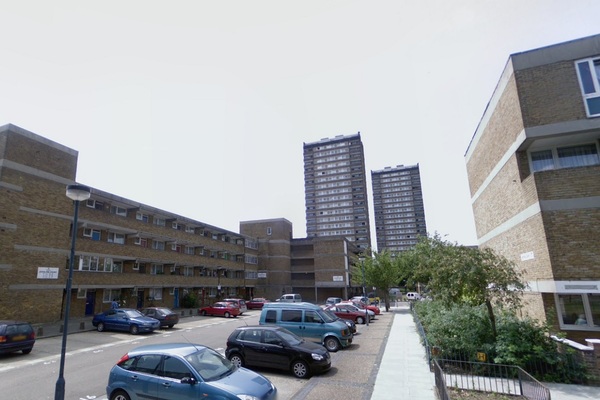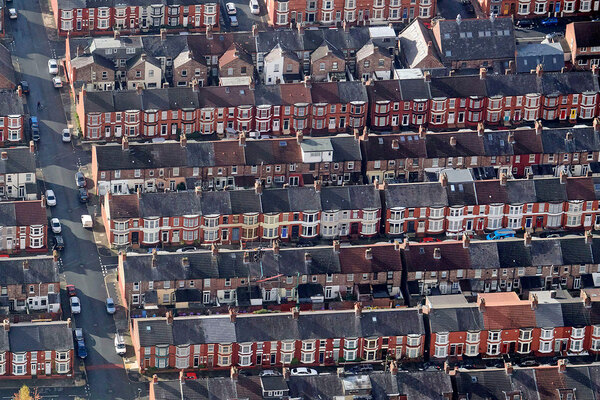You are viewing 1 of your 1 free articles
Regulatory judgements: two housing associations hit with governance downgrades after latest RSH checks
The Regulator of Social Housing (RSH) has hit two housing associations with governance downgrades in its latest round of regulatory judgements.
Estuary Housing Association and Honeycomb Group were both downgraded in the latest round of regulatory judgments released today.
The English regulator also announced governance upgrades for Durham Aged Mineworkers’ Homes Association, Joseph Rowntree Housing Trust, Lincolnshire Housing Partnership and Yorkshire Housing.
Elsewhere, Estuary and Orbit Group saw the reasons for their financial viability grades changed. GreenSquare, which recently merged with Accord, had its regulatory notice withdrawn due to the issues that caused the decision being resolved.
Essex-based Estuary was downgraded from G1/V2 to G2/V2, meaning the landlord meets the RSH’s governance requirements but needs to improve in some areas. Its financial viability grade remained at V2 though the basis for the grade has changed.
The regulator found that the 4,600-home landlord’s stress-testing was not comprehensive enough and that it must strengthen its approach to value for money.
“A lack of measurable plans and value for money targets makes it difficult for stakeholders to hold the organisation to account for delivery,” the RSH said.
While the association is compliant with the Financial Viability Standard, the RSH warned it has “material exposure” that it needs to manage.
The RSH said: “The provider’s financial plan demonstrates increasing reliance on uncertain cash flows from sales income, exposing Estuary to the cyclical risks of the housing market.
“Estuary is dependent on sales to meet covenant requirements and forecast headroom is limited. While Estuary’s liquidity covers its immediate cashflow requirements, the position requires careful management.”
A joint statement from Estuary chair George Kieffer and chief executive Ian Martin, said: "The feedback recognised the improvements that are already underway and pointed us towards where we need to do more.
"At Estuary we are aspirational. We know how we can get better and we are working with the Regulator to deliver those improvements."
North West landlord Honeycomb was also downgraded from G1/V1 to G2/V1. Following an in-depth assessment (IDA), the regulator found that the landlord does not have an up-to-date record of its asset and liabilities or an asset management system that ensures “comprehensive stock condition information”.
The regulator also found issues of compliance with health and safety requirements relating to asbestos and fire safety. “HGL’s [Honeycomb Group Limited] controls are not operating consistently in line with its polices and procedures, and the timeliness and co-ordination of management reporting needs to be improved,” the RSH said.
Diane Thompson, chief executive of Honeycomb, said: “We are aware of the concerns raised by our recent IDA inspection and are addressing them. We are fully engaged with the regulator and will work alongside them to ensure we return to G1.”
Meanwhile, Durham Aged Mineworkers’ Homes Association was found to have strengthened its board’s skills, internal controls, financial reporting and stress-testing, which earned the association an upgrade from G2 to G1.
The regulator said: “The provider’s approach to risk management has been strengthened and a revised risk appetite statement and risk management policy are now in place.
“As part of this work, health and safety policies have been updated and performance reporting to board improved to enhance its oversight of this key risk.”
Yorkshire Housing, which manages 18,000 homes, also received a governance upgrade. A previous IDA had found weakness in its reporting of the financial performance of its commercial subsidiary and its development programme. Stress-testing was also identified as a weakness.
But the latest judgment by the RSH found that “improvements to financial and development activity reporting have strengthened the board’s assurance on subsidiary liquidity risk and the performance of its development programme at both group and subsidiary level”.
After a governance downgrade in 2017, Joseph Rowntree Housing Trust (JRHT) was urged to improve its approach to risk management to ensure compliance with the governance and financial viability standard. Since then the RSH noted the landlord has “simplified” governance arrangements and “clarified” its relationship with the Joseph Rowntree Foundation charity, which has “enabled the creation of an independent and skills-based board for JRHT”. The landlord was subsequently upgraded from G2/V2 to G1/V2.
Lincolnshire Housing Partnership, whose financial forecasts had previously been impacted by data errors, received an upgrade from G2 to G1. The RSH said it had received assurance that the association had improved its controls and processes for ensuring accuracy of business plan data, board reporting and regulatory returns.
Orbit maintained a G1/V2 rating, but the reasons behind the grade changed. The regulator said the provider has “reduced its development programme to improve fiscal resilience and to enable increased investment in its existing stock, but it continues to need to manage the material risks arising from its growth and sales strategy to maintain compliance”.
Jonathan Wallbank, Orbit Group financial director, said: "We are pleased that the regulator has reconfirmed our G1 V2 rating.
"Our development programme remains ambitious with plans in place to build a further 6,500 new homes over the next five years. We are also continuing our investment programme in our existing stock."
The regulator also published five strapline judgements: Cross Keys Homes (G1/V1), The Community Housing Group (G1/V1), Platform Housing Group (G1/V1), Trident Housing Association (G1/V1) and The Wrekin Housing Group (G1/V1).
There were also four newly merged housing associations that received interim judgements including: Brighter Places (G1/V1), Catalyst (G1/V2), Karbon Homes (G1/V1) and Accord (G1/V2).
This resulted in their corresponding merger partners having their regulatory judgements withdrawn. Respectively, these were Solon South West Housing Association, Rosebery Housing Association, Byker Community Trust and GreenSquare.
Update at 15:15, 28.04.21: story edited to clarify that Estuary was downgraded from G1/V2 to G2/V2, not from G1/V1 as previously stated.
Sign up for our legal and regulation newsletter
Already have an account? Click here to manage your newsletters













